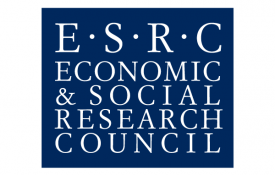-
Apple is Studying Mood Detection Using iPhone Data. Critics Say the Tech is Flawed
New information about a current study between UCLA and Apple shows that the iPhone maker is using facial recognition, patterns of speech, and an array of other passive behavior tracking to detect depression. The report, from Rolfe Winkler of The Wall Street Journal, raises concerns about the company’s foray into a field of computing called emotion AI, which some scientists say rests on faulty assumptions. Apple’s depression study was first announced in August 2020. Previous information about the study suggested the company was using only certain health data points, like heart rate, sleep, and how a person interacts with their phone to understand their mental health.
-
You Can’t Say That!
Many years ago, as a social psychologist specializing in gender equity, I was invited to attend a weekend workshop at the Air Force Academy. I was there to suggest ways to reduce prejudice against women, who were inching up to 10-percent of enlistees. At one of our first sessions, the topic of sexist humor arose. A senior officer grumbled that he always asked his junior officers if it was OK if he told them a joke, and they invariably said yes. Here was his joke: Q: Why do doctors always spank a newborn baby? A: So the penises will fall off the dumb ones.
-

APS Calls on White House, NIH to Integrate Behavioral Science into New Health Agency
In a letter to the White House and NIH, APS and other groups have called for the behavioral sciences to be integrated into the plans for a new health-focused agency on the horizon.
-

UK Funding Opportunity on Advancing Adolescent Mental Health and Wellbeing Research
This opportunity seeks to strengthen the methodological and conceptual frameworks underlying adolescent mental health research.
-
A Real Talking Point: Bilingual Children Are Not Smarter Than Others
Remember how we all thought bilingual kids were smarter because they knew two languages? It turns out that’s not true, say researchers at Western University. J. Bruce Morton and Cassandra Lowe, who work at the school’s Brain and Mind Institute, have poked holes in that long-held theory in a recent spate of papers, including in the journal Psychological Science. ...
-
Social Media Is Attention Alcohol
Last year, researchers at Instagram published disturbing findings from an internal study on the app’s effect on young women. “Thirty-two percent of teen girls said that when they felt bad about their bodies, Instagram made them feel worse,” the authors wrote in a presentation obtained by The Wall Street Journal. “They often feel ‘addicted’ and know that what they’re seeing is bad for their mental health but feel unable to stop themselves.” This was not a new revelation. For years, Facebook, which owns Instagram, has investigated the app’s effects on its users, and it kept getting the same result.

